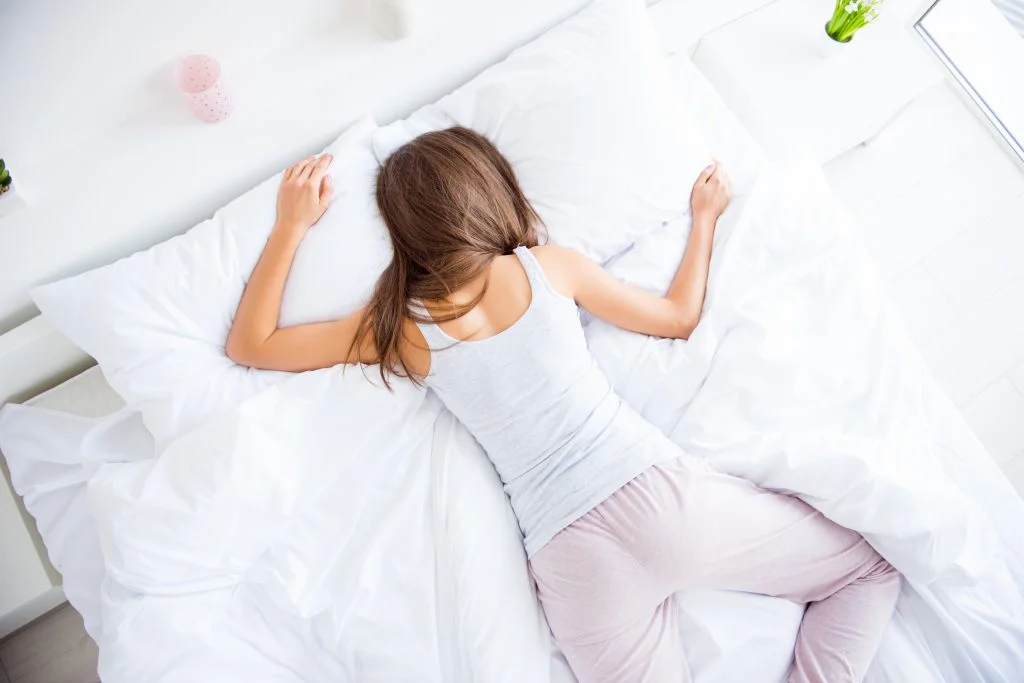
A good night’s rest offers a long list of health benefits, including elevated energy. But many of us aren’t getting enough sleep. According to data from the Center for Disease Control, the use of prescription sleep aids has doubled since 2010. Many swear by their sleeping pills, which can offer an effective sleep solution. But they can also come with side effects like digestion problems, headaches, and muscle weakness.
Sometimes your body gets so used to a sleeping pill, you can no longer fall asleep without it. This is especially true for benzodiazepines like Ativan. But what if you had a different option? A recent study has found a surprising link between a new probiotic and improved sleep and energy. We’ll get into the study details, but first let’s talk about probiotics.
What Are Probiotics?
If you look at an illustration of your body, everything looks clean, calm, and orderly. In reality, your body hosts a crowded population of bacteria, each clamoring to go about their day. While some bacteria can be harmful, others are not only helpful but essential for your body to do its thing. Good bacteria hold extra importance in your gastrointestinal tract, or GI tract.
Your GI tract is the path food follows from your mouth to the exit. After you eat anything, food and drink make their way through your esophagus, stomach, small intestine, large intestine, and rectum. Throughout this journey, good bacteria break down your food and help your body absorb nutrients.
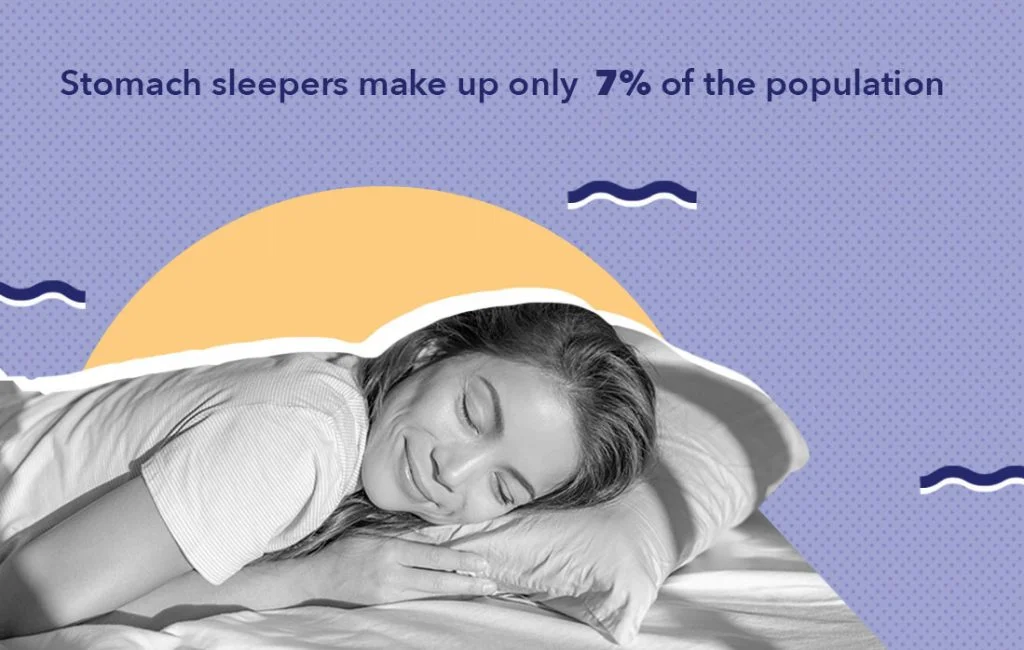
Most good bacteria hang out in your large intestine, often referred to as your “gut.” A probiotic is a microscopic organism, or a microbe, that acts as a good bacteria in your gut. Research has shown a ton of probiotic benefits, including the treatment of:
- Clostridium difficile infection
- Diarrhea
- Eczema
- Metabolic syndrome
- Nonalcoholic fatty liver disease
- Obesity
- Type 2 diabetes
The types of bacteria living in your body create your “microbiome.” Everyone’s microbiome is unique and can be adjusted with changes in diet and with the assistance of a probiotic supplement.
New Probiotic Product Claims Improved Sleep and Energy
It’s World Microbiome Day and researchers with Fitbiomics, a probiotic company, have released a study that suggests a link between their new probiotic Nella and a handful of noticeable health improvements, including better sleep and increased energy.
A lead researcher on the project, Dr. Aleksandar Kostic, FitBiomic Co-Founder and Asst. Professor of Microbiology at Harvard Medical School, tells Sleepopolis the inspiration for Nella sparked when other researchers in the field transferred an active mouse’s microbiome into a mouse that liked to sit around. Once the lazy mouse received the active mouse’s microbiome, its metabolism increased, it was able to exercise more, and it experienced overall improved health.
This gave FitBiomics researchers the idea that they could replicate this concept in humans through a probiotic. “Capturing those changes to the microbiome and transferring them to people in the form of a probiotic could transfer at least some of the health benefits of exercise.”
These enhancements can’t reach the level of hard-earned physical exertion, cautions Kostic, but the microbiome can provide a lot of the same benefits. “And that was the reasoning behind going forward with this probiotic formulation.”
University of Parma researchers developed a cocktail of lactobacilli — a type of probiotic — that were isolated from elite athletes. The idea was, if they could identify which microbes showed up in very active people, those microbes could provide huge health benefits to a less athletic person who takes it.
To study these effects, FitBiomics researchers gave their probiotic product, Nella, to 257 trial participants to study its effects. After two weeks, those taking it reported better sleep quality among several other beneficial results like increased energy and more regular bowel movements.
The second part of the study included 11 professional soccer players. Unlike the larger group, who all knew what they were taking, these athletes either took Nella or a placebo. At the end of the study period, the probiotic group reported substantial improvement in:
- sleep quality (69 percent)
- energy levels (31 percent)
- bowel regularity (37 percent)
Sleep quality was the number one reported improvement, a big surprise to Kostic. “We never would have expect sleep to come up,” he says,” but it was the number one benefit reported in the open label study… and in the placebo study.”
Boost Your Probiotics for Better Sleep
Kostic doesn’t recommend switching out your sleeping pills for Nella just yet. To know if Nella can fully replace other sleep aids, says Kostic, “we would have to test the drugs side by side.” In the second portion of their study — the placebo control group — the University of Parma researchers were able to look at very specific data from blood and stool samples.
“What we see is a reduction in markers of oxidative stress, which has been previously associated with the microbiome,” Kostic says. “We believe it’s possible that these reductions in oxidative stress may improve the ability to receive more restorative benefit from sleep.”
The research team noticed a reduction in inflammatory biomarkers, which suggests their probiotic can benefit the whole body by lowering inflammation. They also saw slowdown in cortisol, the stress hormone. Both inflammation and high cortisol levels have shown to disrupt slumber, so lower levels of these sleep-blockers can only help your nighttime rest.
A study review published in 2020 in Nature looked at 14 studies around probiotics and improved sleep. Their results suggest probiotics don’t have much of an effect on sleep, but they agreed that future studies may show different outcomes.
The FitBiomics research team plan to conduct future studies in which they can look more closely at biomarkers for factors like inflammation in their test subjects. This will allow other teams to check their work in peer-review studies, and better understand why Nella may promise better sleep.
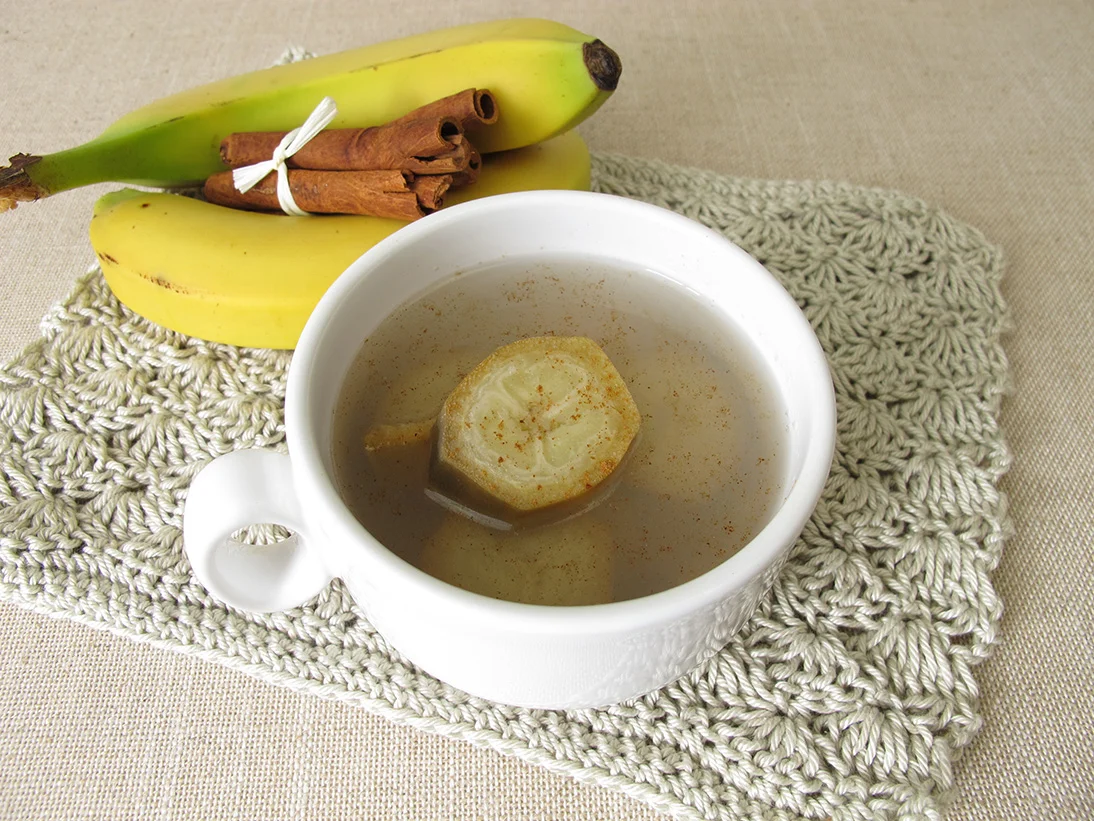
Sleep Remedies – Banana Peel Tea
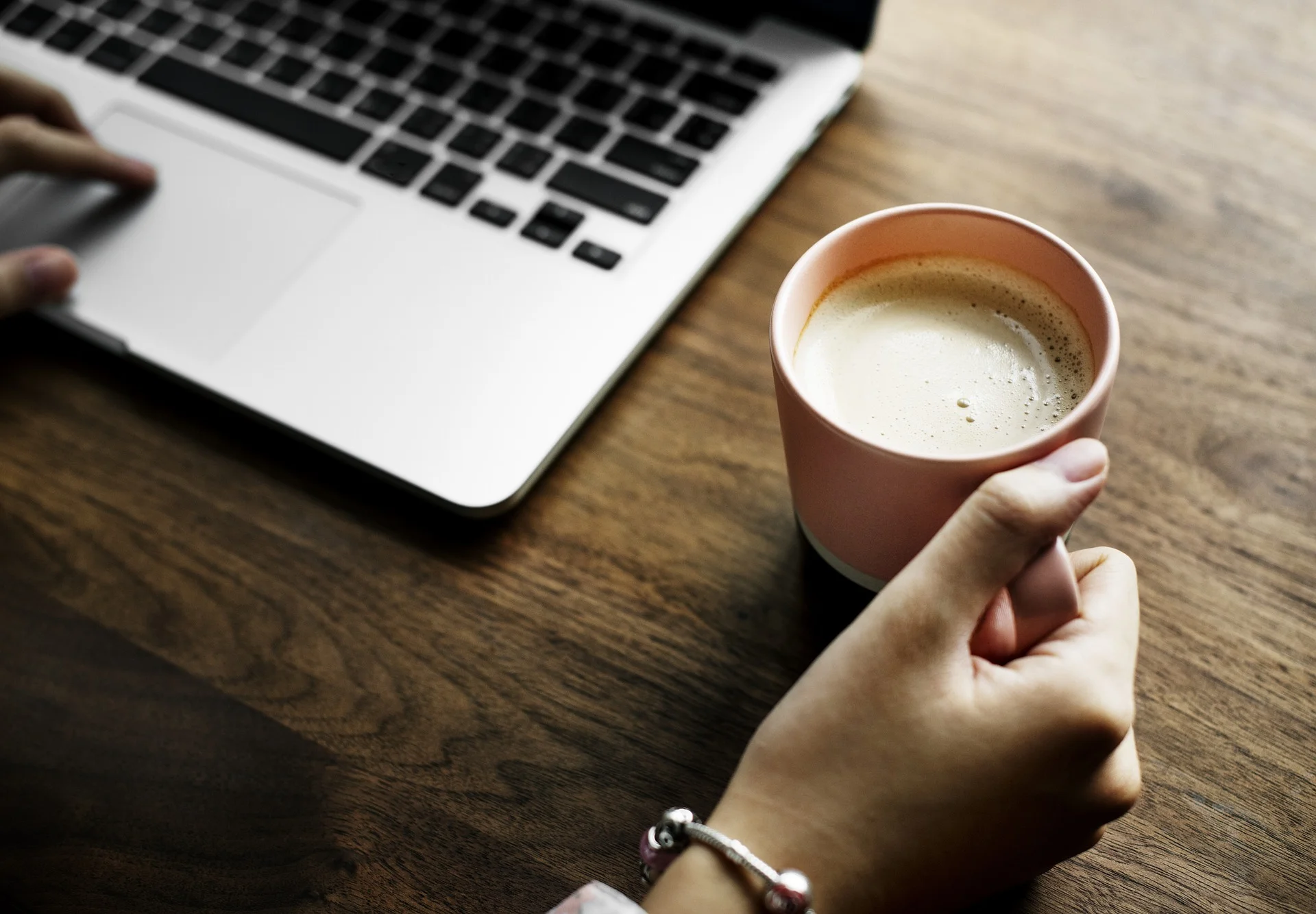
Study Suggests Gut Health Can Help With Sleep
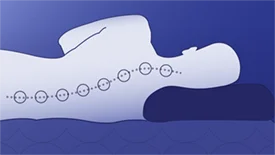
Best Mattresses for Stomach Sleepers: Firm, Supportive Beds Tested and Reviewed by Experts
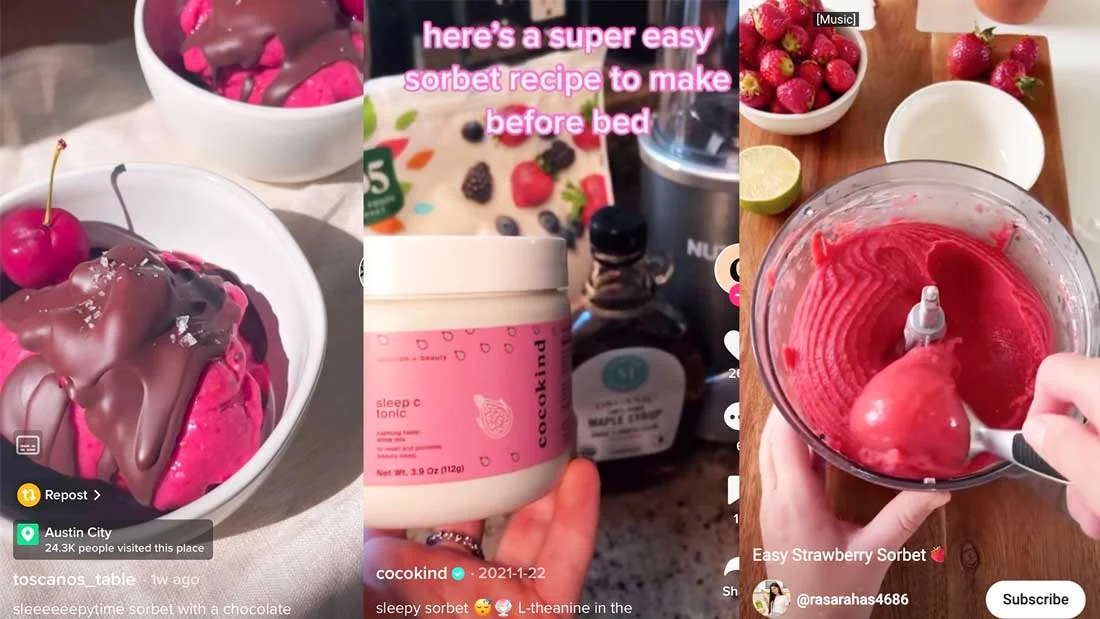
“Sleepy Sorbet” Is Everywhere, But Does It Work? I Tried It Out Myself
Sources
Centers for Disease Control and Prevention. Data Brief No. 462: Prescription Drug Use in the Past 30 Days, Total Long-term and Therapeutic Drug Use in the United States, 2019. Accessed June 26, 2024. https://www.cdc.gov/nchs/products/databriefs/db462.htm#
Centers for Disease Control and Prevention. Data Brief No. 127: Prescription Sleep Aid Use Among Adults: United States, 2005–2010. Accessed June 26, 2024. https://www.cdc.gov/nchs/products/databriefs/db127.htm
Cleveland Clinic. Sleeping Pills. Accessed June 26, 2024. https://my.clevelandclinic.org/health/drugs/15308-sleeping-pills
Harvard Health Publishing. Learn the risks of sleep aids. Accessed June 26, 2024. https://www.health.harvard.edu/sleep/learn-the-risks-of-sleep-aids
Bongiovanni T, Santiago M, Zielinska K, et al. The Sleep-Exercise-Microbiome Nexus Unravelled: a Lactobacillus Consortium Illuminates Molecular Mechanisms in Proof of Concept Studies of Elite Athletes and in the General Population. Unpublished. Published online 2024. doi:10.13140/RG.2.2.23616.92160
National Institutes of Health. Benefits of Slumber. Accessed June 26, 2024. https://newsinhealth.nih.gov/2013/04/benefits-slumber#
MedlinePlus. Melatonin. Accessed June 26, 2024. https://medlineplus.gov/druginfo/natural/790.html
Cleveland Clinic. Probiotics. Accessed June 26, 2024. https://my.clevelandclinic.org/health/articles/14598-probiotics
National Center for Complementary and Integrative Health. Probiotics: What You Need To Know. Accessed June 26, 2024. https://www.nccih.nih.gov/health/probiotics-what-you-need-to-know
National Institute of Diabetes and Digestive and Kidney Diseases. The Digestive System & How It Works. Accessed June 26, 2024. https://www.niddk.nih.gov/health-information/digestive-diseases/digestive-system-how-it-works
Mayo Clinic. What is probiotics and why are they important? Accessed June 26, 2024. https://www.mayoclinic.org/healthy-lifestyle/nutrition-and-healthy-eating/expert-answers/probiotics/faq-20058065
Nature. Dairy propionibacteria: versatile probiotics. Accessed June 26, 2024. https://www.nature.com/articles/s41430-020-0656-x
ScienceDirect. Oxidative Stress. Accessed June 26, 2024. https://www.sciencedirect.com/topics/medicine-and-dentistry/oxidative-stress
Harvard Health Publishing. Understanding antioxidants. Accessed June 26, 2024. https://www.health.harvard.edu/staying-healthy/understanding-antioxidants
Thau L. Physiology, Cortisol – StatPearls – NCBI Bookshelf. National Center for Biotechnology Information. Accessed June 27, 2024. https://www.ncbi.nlm.nih.gov/books/NBK538239/

























